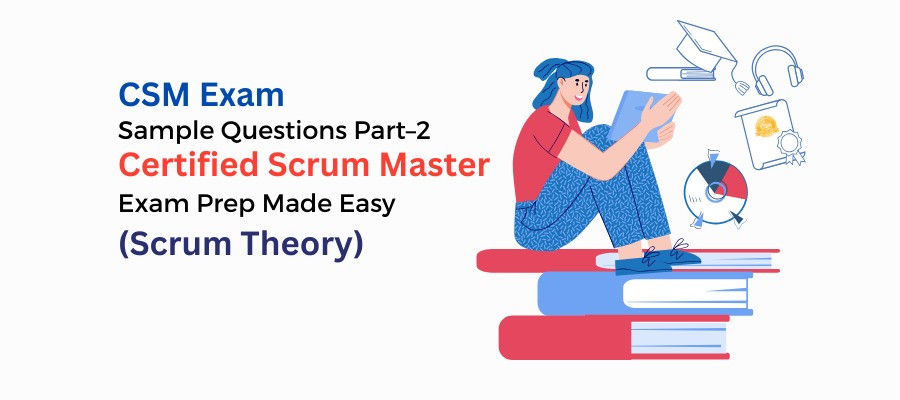CSM Exam Sample Questions Part–2: Certified Scrum Master Exam Prep Made Easy (Scrum Theory)

In our previous blog post, we looked at the Agile Manifesto using a series of sample questions to assist you prepare for the Certified Scrum Master exam. Today, we'll delve deeper into Scrum theory, another critical component of the CSM certification.
Scrum theory offers a framework for managing projects in an Agile environment. Understanding the key ideas of Scrum theory will help you answer related questions on the Certified Scrum Master exam and effectively use Scrum methods in your projects.
1. Empiricism is NOT:
- Defined process with a sequence of steps.
- Knowledge to make a decision comes from experience and observation of prior iterations.
- Decision making is based on past experience.
- Evidence based rather than theory or pure logic.
2. Scrum can be applied to:
- Software products only.
- Software and Hardware projects only.
- Software and Hardware but development projects only.
- Any complex domain where the problem and solution are not clearly defined upfront.
3. The three pillars of Empiricism are:
- Planning, Measurement and Decision Making.
- Transparency, Iteration and Sprints.
- Transparency, Inspection and Adaptation.
- Focus, Inspection and Adaptation.
4. Scrum is about:
- Incremental only.
- Iterative only.
- Incremental and Iterative.
- Neither Incremental Nor Iterative.
5. A common language referring to the process or product must be shared by all participants. This promotes:
- Transparency
- Inspection
- Adaptation
- Team bonding
Let's Conclude
By understanding and applying Scrum theory, you can effectively manage projects in an Agile environment. These sample questions provide a starting point for your exam preparation. Remember, consistent practice and a thorough understanding of Scrum principles are key to conquering the CSM exam.
In the next installment of this series, we'll explore Scrum Roles in detail. Stay tuned!
Don't forget: If you have any questions or require further guidance, feel free to reach out to our Scrum experts for assistance. They'll be happy to help you on your path to CSM certification!



